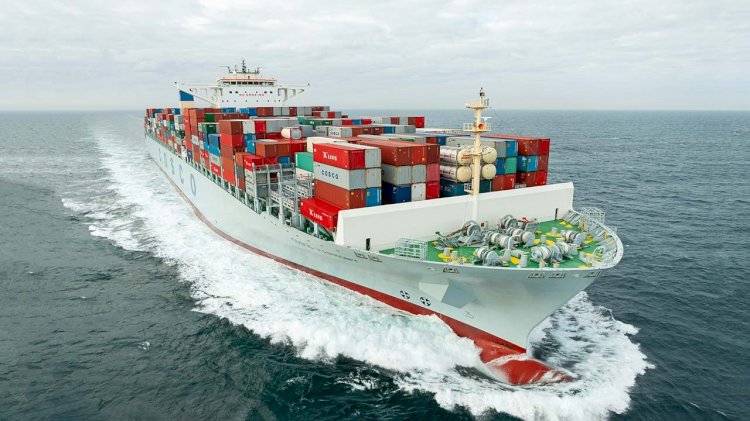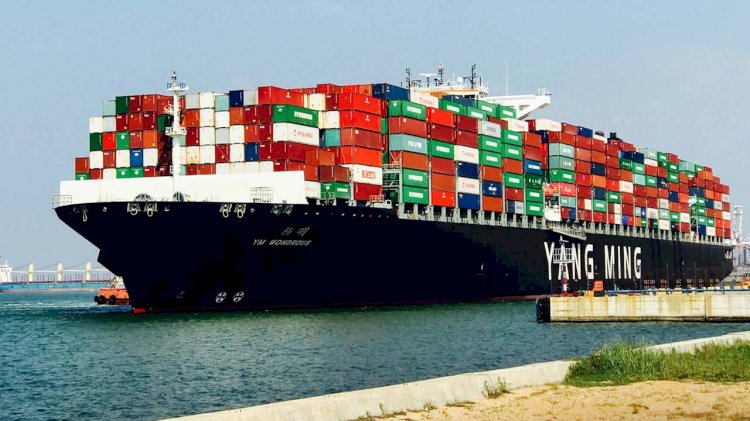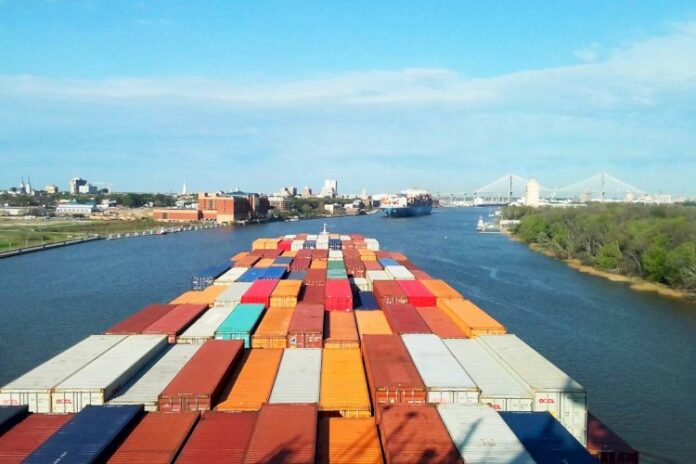Seaspan Ship Management has selected Alfa Laval to help resolve steam balance and redundancy issues connected to sulphur-compliant fuels. The comprehensive solution – an integrated steam boiler plant comprising oil-fired steam production, waste heat recovery, advanced control and connectivity – will soon be implemented on eight Seaspan owned large container ships.
Prior to the IMO global sulphur cap’s entry into force, Seaspan Ship Management made the decision to work with sulphur-compliant fuels on its container vessels. Like most container vessels, however, the Seaspan owned vessels have only a single oil-fired boiler and a waste heat recovery boiler on board. This provides no redundancy, which is problematic when using sulphur-compliant fuels.
Arvin Dsouza, Fleet Manager at Seaspan Ship Management, says:
“The composition of low-sulphur fuels was uncertain when we first decided for them, but it quickly became clear that high paraffin content would be an issue. To avoid wax formation, the fuel temperature has to stay above the pour point at all times. But the existing boiler solution on the above-mentioned vessels can’t guarantee the required steam capacity as these vessels do not have heating coils in all the designated fuel oil tanks and rely on a shifter system. We chose to work with Alfa Laval, who found the answers we needed.”
To secure a sufficient and reliable supply of steam, including full steam plant redundancy, Alfa Laval proposed rebuilding the existing oil-fired boiler and adding a new Alfa Laval Aalborg oil-fired boiler. This will support fuel heating by means of steam coils in all tanks. Both the fired boilers and the waste heat recovery boiler will be interconnected through the Alfa Laval Touch Control system, creating a single steam solution.

Dsouza says:
“Alfa Laval is unique in having all the boiler, burner and control technologies in-house. They presented a complete heating solution that keeps as much as possible of the existing equipment on board, but which integrates the different components for smooth performance as one system. With their knowledge, they could tie everything together.”
On each container vessel, Alfa Laval experts will strip out and replace the electrical components of original oil-fired boiler, which was supplied by a different manufacturer. However, they will assimilate its pressure section, ring line equipment and burner, using them to create a new boiler capable of being connected to the Alfa Laval Touch Control system. For a seamless solution, the same type of burner will be used on the new Aalborg boiler.
Dsouza says:
“Rather than replacing the competitor burner with their own, Alfa Laval is incorporating the same type, so that we can make use of the knowledge and parts we have on board. Everything, including waste heat recovery, will be smoothly handled through the Alfa Laval Touch Control system, as if it had all come from Alfa Laval in the first place.”
The Alfa Laval Touch Control system, which will replace the older boiler’s relay-based control system, is a PLC-based system that can run the oil-fired boilers in either master/slave or load-sharing modes.
Dsouza, who praises the system’s ease of use, says:
“We’ll have complete operational flexibility. Through the graphical touchscreen, the operators will have a full overview of the steam plant and be able to make adjustments with just a touch or two.”
Beyond the possibilities offered by the control system, the new boiler solution will be equipped for connectivity. Alfa Laval service experts will be able to monitor the system’s condition remotely, creating opportunities for troubleshooting, assistance and optimization. Based on collected data, for example, they will be able to guide the crew in performing necessary maintenance procedures or schedule field services like combustion tuning when required.

Dsouza says:
“Connectivity will give us deeper and more continuous contact with Alfa Laval service expertise. It will mean peace of mind, but also more effective and cost-efficient use of our boiler systems over time.”
Satisfied with the new steam plant solution, Seaspan Ship Management will implement the setup on the first container vessel in early spring of 2020. Installations will then continue on the remaining seven vessels, running throughout 2020 and into 2021. The installations are planned to take place in a shipyard, but they can be performed at sea if unforeseen disruptions in yard schedules make it necessary.
Dsouza says:
“We will be able to move forward with the projects, even if circumstances mean we can’t install at the yard. Alfa Laval has the capability to deliver the parts and install them while the vessel is underway. Whether the installations happen in dry dock or at sea, we’re confident in the solution and we know we count on Alfa Laval’s quality and efficiency.”



